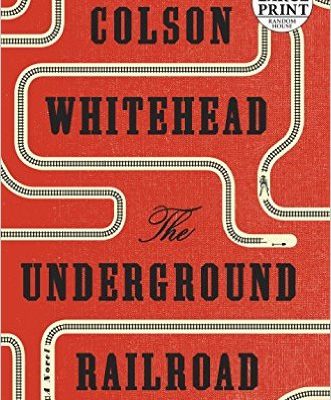The sense of guilt that I felt while reading The Underground Railroad on a beach in Nicaragua seemed silly. As a first generation immigrant, it’s not like anyone in my family can trace their ancestry back to a plantation. Yet precisely because I was an immigrant, the fear of racism still lurks in the shadows. Knowing that the almost equality I enjoy today was built on hundreds of years of struggle by those less fortunate makes it just a bit harder to feel my usual entitlement.
The book has won numerous awards and has been on quite a few reading lists, praised by many from Oprah to Bill Gates to Barrack Obama. The story was captivating from the very start, with each person’s tale unfolding with reluctant rhythm. The writing style of Colson Whitehead seemed plain. The words did not come with many embellishments, nor did the characters. Sometimes a character would appear, but just as you start to wonder what role they might play, they were already gone.
At first I thought this was a weakness in the story’s construction, then I realized that’s exactly what the author intended. The characters, each one with the potential to have their own story line, lost their lives before they could even be remembered. Even with the main characters, there was a sense of suspense, because you don’t know how long they’ll make it. It’s like Game of Thrones, just when you think someone has a chance, they get slaughtered in the most bloody manner, or die a most inglorious death.
Sometimes it was after death that you get the full picture. Or at least a fuller picture, so that before the character completely fades, you feel the sense of regret, and sometimes guilt for not liking them more while they were still alive.
Pessimism seemed to fill every page, mostly through the characters’ inner dialogues. The words were harsh and cruel, with not even an attempt to hide the bitterness. The blatant bitterness emerged as some of my favorite quotes:
“The whites came to this land for a fresh start and to escape the tyranny of their masters, just as the freemen had fled theirs. But the ideals they held up for themselves, they denied others.”
“And America, too, is a delusion, the grandest one of all. The white race believes–believes with all its heart–that it is their right to take the land. To kill Indians. Make war. Enslave their brothers. This nation shouldn’t exist, if there is any justice in the world, for its foundations are murder, theft, and cruelty. Yet here we are.”
“Slavery is a sin when whites were put to the yoke, but not the African. All men are created equal, unless we decide you are not a man.”
Every single person in the story is flawed. The less flawed ones were the dead, having had their virtues exalted and vices diminished by death. The heroine (or antiheroine)’s acrimonious attitude earned her no friends. The villain is a despicable human being who occasionally invokes some sense of respect. If there is anything everyone in the story had in common, it’s that there were moments where everyone deserved a little sympathy.
I didn’t love the book, but I’m glad I read it. Something is right about a book that makes you feel a bit uncomfortable, makes you grateful, makes you wonder wonder whether we’ve come far enough. I like the complicated and somewhat shallow characters, who were difficult to understand because they probably were not too sure of who they are themselves, and did not leave deep impressions because they didn’t have enough time to develop into who they are.
I like this one quote from earlier in the book, perhaps during a moment where Cora genuinely thought she could be happy:
“Cora didn’t know what optimistic meant. She asked the other girls that night if they were familiar with the word. None of them had heard it before. She decided that it meant trying.”
It’s not much, but in a dark world like hers, just trying was more than what most people did their entire lives. I guess that is the essence of what the underground railroad meant to the slaves, the tiniest glimmer of hope that gives them the strength to just try.


Leave a Reply